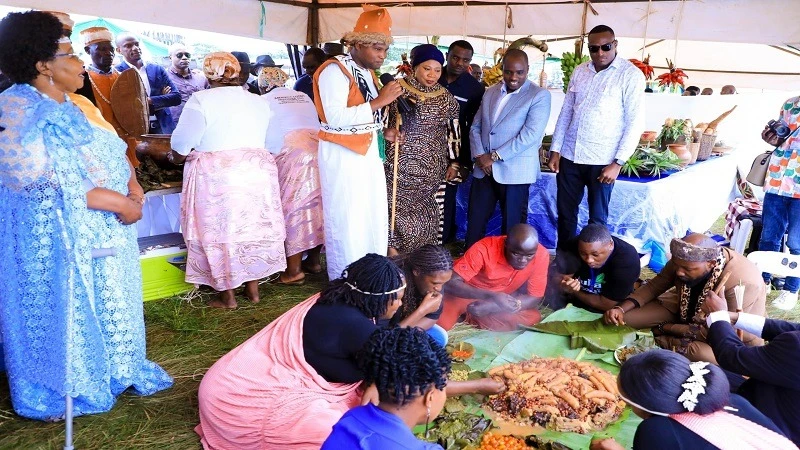Pan-African Parliament to build seat in Dodoma

MEMBERS of the Commonwealth Parliamentary Association (CPA) in their 53rd Africa regional conference at the weekend concluded the conference with a decision to build the CPA continental headquarters in Dodoma.
Salome Makamba (Special Seats, Opposition) and a Tanzanian delegate at the meeting, said in a briefing as a member of the resolutions drafting committee that the delegates resolved to build a state-of-the-art regional headquarters at the cost of $30m.
Other than hosting the CPA Africa regional secretariat, the new Pan-African parliamentary building will feature continental assembly halls in which some of the meetings and sessions will regularly be held.
Nontembeko Boyce, a KwaZulu Natal MP from South Africa chaired the committee, which also featured Makamba, (Tanzania) Ilyas Karim (Malawi) and Abdul Marray-Conteh (Sierra Leone).
The committee was assisted by a parliamentary secretariat team composed of Thomas Shawa, Emmanuel Mpanda, Hanifa Masaninga, Mkuta Masoli and Ludovick Ringia.
Among the resolutions, delegates noted the commitment made by African countries in the Paris Agreement and the United Nations Framework Convention on Climate Change (UNFCCC) on the mitigation of greenhouse gas emissions to enhance resilience to climate impacts.
They further noted the African Union Agenda 2063 calling for united efforts and self-reliance, along with the possibility for Africa to finance its own climate smart, all-inclusive, people-driven development.
The committee also highlighted the need for Africa to speak with one voice in global affairs, recognizing the urgent need for African countries to enhance their preparedness to cope with the effects of climate change.
The meeting acknowledged the diverse impacts climate change has on various sectors including agriculture, water resources, public health, infrastructure and food security.
Delegates affirmed the need for collaborative efforts among African nations to share knowledge, resources and best practices in addressing climate change challenges.
They pointed at the rising frequency and severity of climate related events such as droughts, floods and cyclones across the continent, which have significant socio-economic impacts.
Addressing climate change requires a multi-faceted approach involving government agencies, private sector stakeholders, civil society organizations and local communities, they stated.
CPA Africa reaffirmed the commitment of African nations to work collaboratively towards achieving the Sustainable Development Goals (SDGs), in addressing climate challenges with resilient infrastructure, sustainable agriculture practices and renewable energy solutions.
The resolutions underlined that fossil fuels, including oil, natural gas and coal still account for a major portion of energy sources in Africa despite not being environment friendly.
They not cost ineffective and are unsustainable, demanding the recognition of the vast potential of renewable energy sources in Africa including solar, wind, hydro and geothermal energy.
There is also the critical role that renewable energy can play in driving sustainable industrialization and economic growth across the continent, the committee specified.
Transitioning to renewable energy sources will enable reduced greenhouse gas emissions and improved air quality, pushing for increased investment in renewable energy infrastructure.
They were of the view that this effort can drive economic development, create jobs and improve energy security, acknowledging the challenges posed by inadequate financing, technical expertise and regulatory frameworks in scaling up renewable energy projects.
The committee recalled commitments made under the Nairobi Declaration to increase Africa’s renewable energy capacity from 56,000 megawatts to 300,000 MW by 2030.
The 53rd Commonwealth Parliamentary Association (Africa Region) annual general conference took place from September 29 to October 7, exploring the role of African parliaments in addressing existential global challenges of food insecurity, climate change and youth unemployment.
The meeting was attended by parliamentarians from national and sub-national branches committed to the ideals of the African Union and the Commonwealth.
Top Headlines
© 2024 IPPMEDIA.COM. ALL RIGHTS RESERVED






















